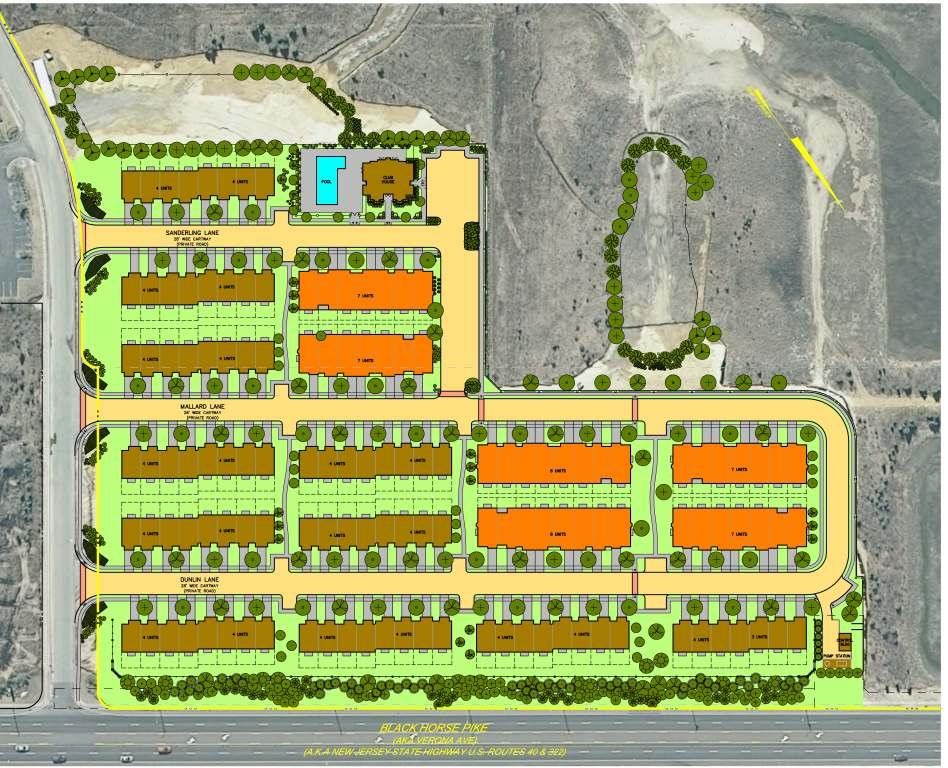Marathon assisted The Curran Group, Matzel & Mumford and K. Hovnanian Homes in site engineering and the preparation of various federal, state and local land use permit applications for the Bayport townhouse development, situated on Lakes Bay in Egg Harbor Township. Marathon prepared site design drawings for the proposed 142 unit townhouse development including site plan, grading plan, utilities plan, stormwater management plan, landscaping plan, and soil erosion and sediment control plan.
Environmental land use permit applications that were prepared by Marathon included CAFRA, and Coastal Wetland Permit applications to the NJDEP and a Department of the Army Permit application to the United States Army Corps of Engineers under Section 404 of the federal Clean Water Act.
The project area was a former dredge spoils area that was dominated by common reed grass with bayberry, red cedar and poison ivy. There were wetlands within the site that were regulated under New Jersey’s Coastal Wetlands Act of 1970, the Freshwater Wetlands Protection Act of 1987 and Section 404 of the Federal Clean Water Act.
During the permit review by the NJDEP, a number of environmental policies under the New Jersey Rules on Coastal Zone Management had to be addressed including the threatened and endangered species habitat policy and critical wildlife habitat policy. The NJDEP Division of Fish and Wildlife had recommended to the Land Use Regulation Program that 300 foot buffers be maintained around all of the wetlands within the site and that 25 % of the developed upland area be preserved to maintained migratory bird habitat. This restriction would have significantly impacted the development potential of the site and would have rendered the project not viable.
After numerous onsite meetings with the NJDEP, Marathon negotiated the reduction of wetland buffers and upland preservation through a proposal that included enhancement and mitigation of upland habitat. The wetland buffers were reduced down to fifty feet around the majority of wetlands within the site. To reduce the buffers down from 300 feet, maritime forest mitigation plan was implemented to offset impacts to the foraging habitat for the threatened and endangered species. This compromise resulted in minimal impact to the site plan, prepared by Marathon.
Client: Matzel & Mumford Organization, Inc.
5 Commerce Way
Hamilton, New Jersey 08691
Carl Erler, Esq. (609) 570-4682
Period of Performance: 2004 – Present
Key Personnel: Jason T. Sciullo, P.E.
Rick Ricciardi, AICP, PP

